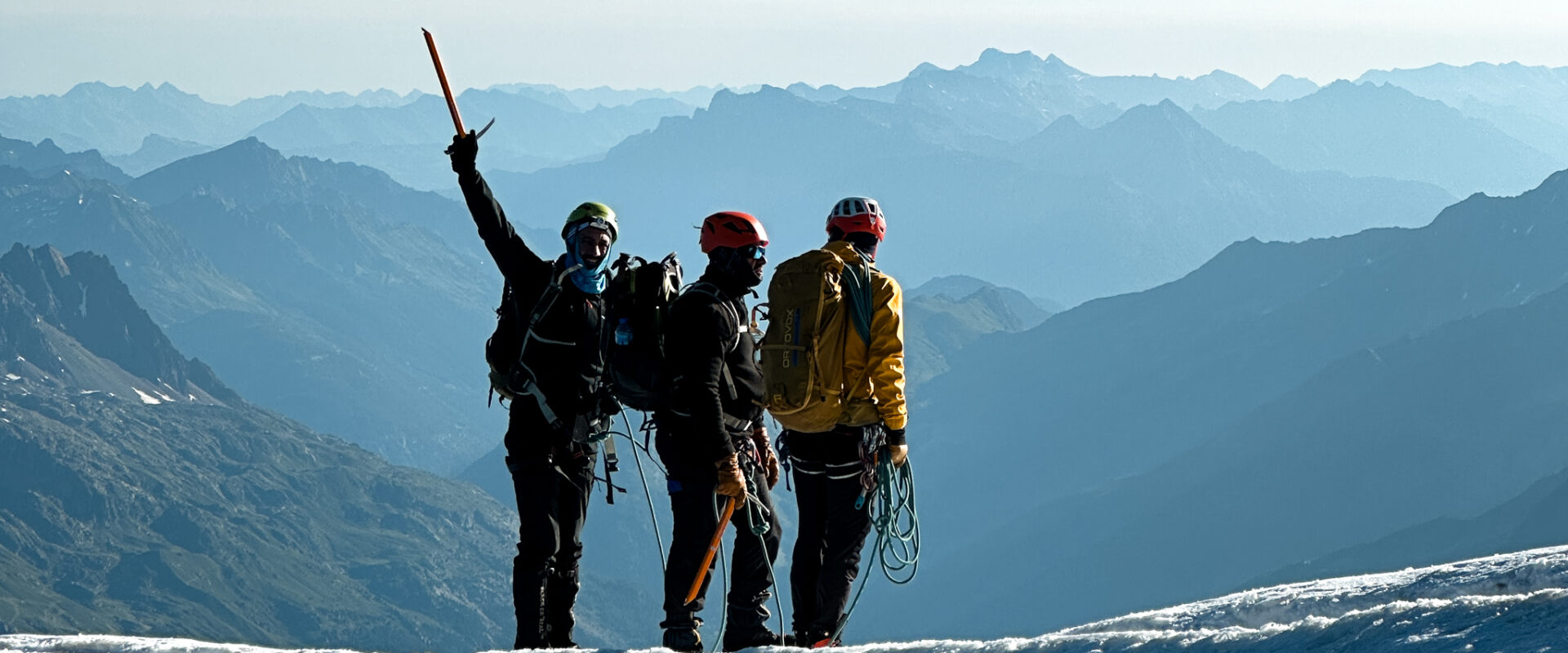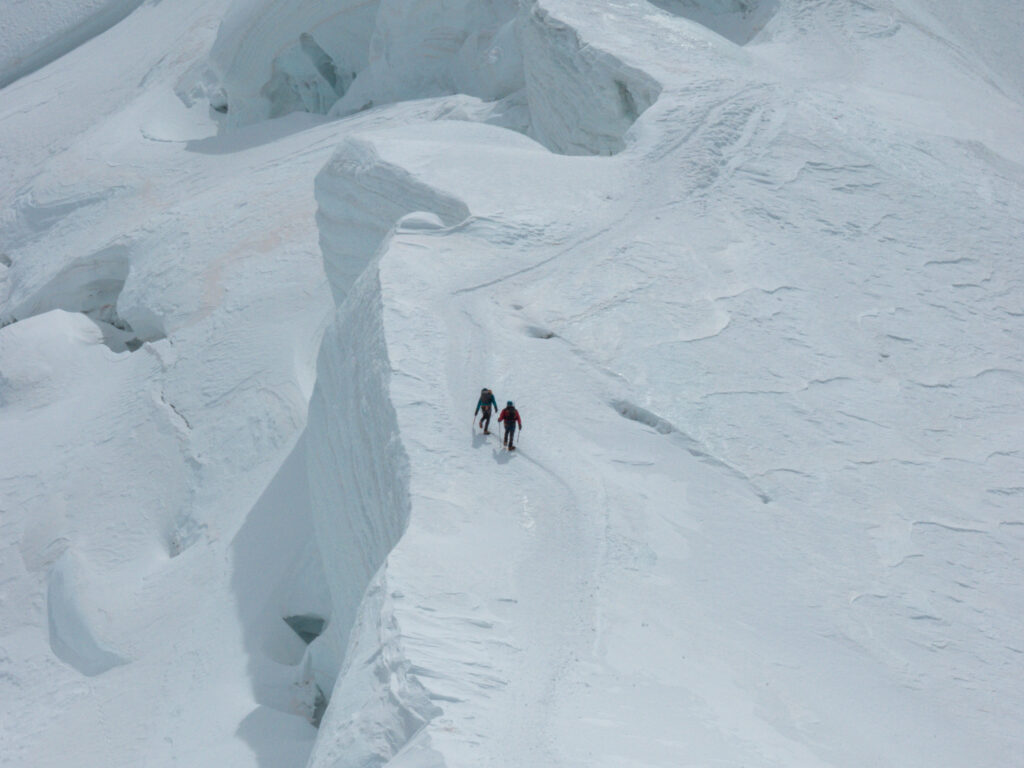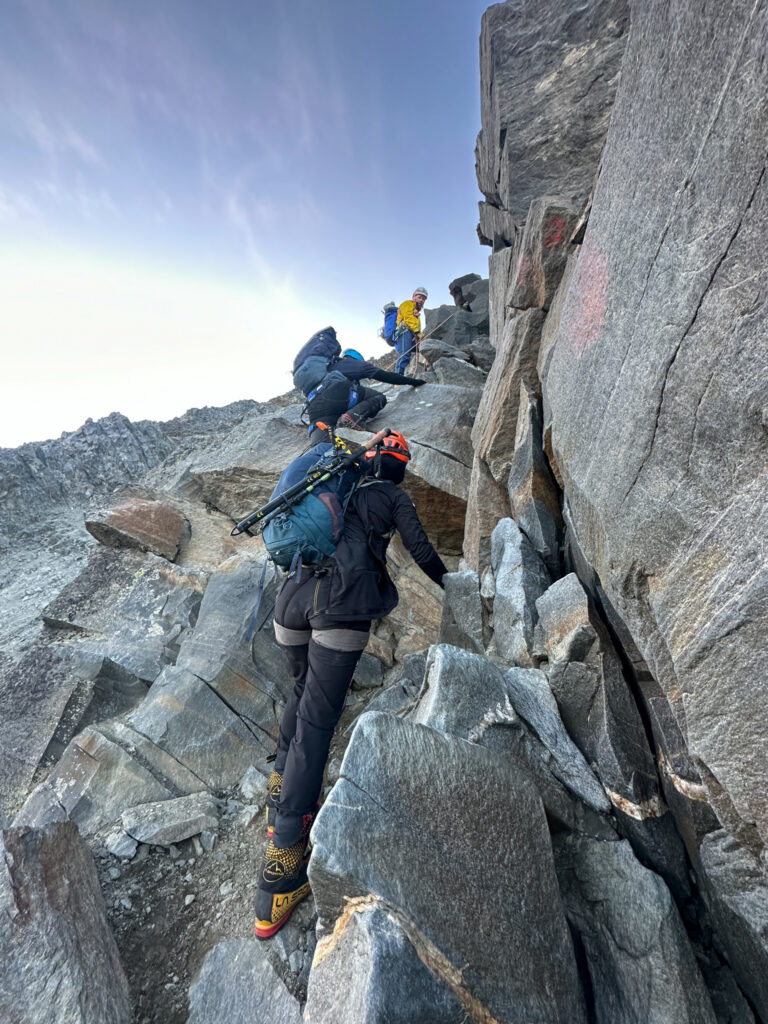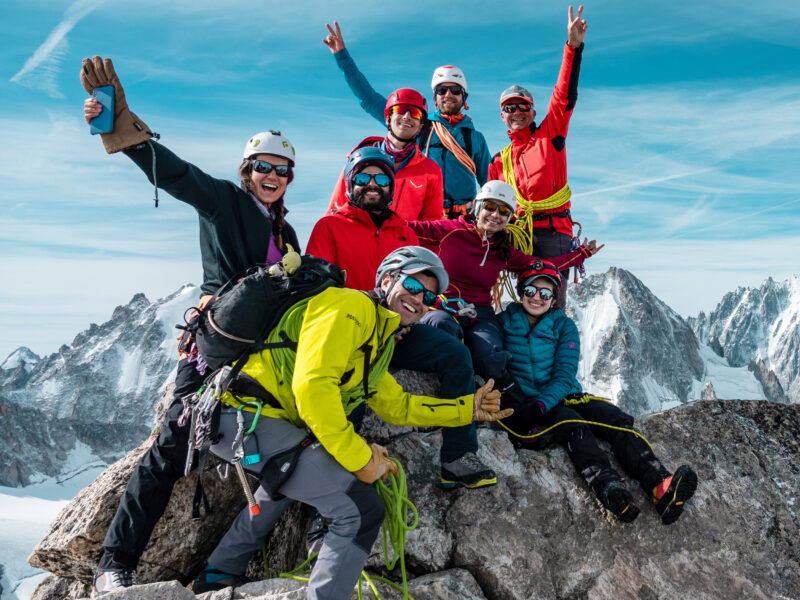BY Rami Rasamny | April 23 2024
How to Prepare Physically and Mentally to Climb Mont Blanc

Embarking on the ascent of Mont Blanc, the iconic peak towering in the French Alps, demands not only physical prowess but also mental resilience. As the highest peak in Western Europe, reaching its summit requires meticulous preparation and training to tackle the challenges of high altitude, rugged terrain, and unpredictable weather. In this guide, we’ll outline a comprehensive training regimen to help you conquer Mont Blanc, incorporating cardio, strength, flexibility, and mental resilience exercises into your routine.
1. Cardiovascular Training:
Regular cardiovascular exercise is essential for building endurance and stamina, crucial for sustained effort at high altitudes. Incorporate activities such as running, hiking, trail running, uphill treadmill walking, stair climbing, swimming, or cycling into your weekly routine. Aim for at least 3 to 4 sessions per week, gradually increasing the duration and intensity as your fitness improves.
2. Strength Building:
Strength training forms the foundation of your physical preparation for Mont Blanc. Focus on exercises that target major muscle groups, including push-ups, squats, lunges, and planks. These compound movements help improve overall strength and stability, enhancing your ability to carry a heavy pack and navigate challenging terrain. Dedicate 2 to 3 sessions per week to strength training, incorporating both bodyweight exercises and weighted resistance as appropriate.

3. Flexibility and Mobility:
Maintaining flexibility and mobility is crucial for preventing injuries and optimizing performance during your climb. Incorporate yoga sessions into your training routine to improve flexibility, balance, and range of motion. Yoga also provides an opportunity for mental relaxation and focus, enhancing your overall readiness for the demands of high-altitude climbing. Aim for 1 to 2 yoga sessions per week, focusing on poses that target tight areas such as the hips, hamstrings, and shoulders.
4. Activity-Specific Training:
In addition to general fitness training, incorporate activity-specific exercises to simulate the movements and challenges you’ll encounter while climbing Mont Blanc. Indoor or outdoor rock climbing is an excellent way to develop upper body strength, grip strength, and technique, while also honing your mental focus and problem-solving skills. Aim for 1 to 2 climbing sessions per week, gradually increasing the difficulty and duration of your climbs as your proficiency improves.

5. Mental Resilience Training:
Preparing mentally for the challenges of high-altitude climbing is just as important as physical conditioning. Incorporate mental training and stress management techniques into your routine to build resilience and focus. Consider incorporating activities such as meditation, visualization exercises, and isometric holds to cultivate mental strength and concentration. Ice baths can also help simulate the discomfort of cold conditions and build mental toughness. Dedicate time each week to mental training, integrating these techniques into your daily routine to enhance your ability to cope with the rigors of the climb.
Conclusion:
Preparing to climb Mont Blanc requires a comprehensive approach that addresses both physical and mental conditioning. By incorporating regular cardio, strength, flexibility, and activity-specific training into your regimen, along with dedicated mental resilience exercises, you’ll be well-equipped to tackle the challenges of high-altitude climbing and reach the summit of this iconic peak. Dedicate 3 to 4 days per week to focused training, gradually increasing the intensity and duration as your climb date approaches. With dedication, preparation, and perseverance, you’ll be ready to conquer Mont Blanc and experience the breathtaking beauty of the French Alps from its summit.
About The Author
Rami Rasamny is the founder of Life Happens Outdoors, a premium adventure travel community dedicated to transforming lives through curated outdoor experiences. A mountaineer and entrepreneur, Rami has led teams on some of the world’s most challenging peaks, from the Alps to the Himalayas. His mission is to make adventure accessible, transformative, and safe for all who seek to push their limits and Come Back Different.
About Life Happens Outdoors
At Life Happens Outdoors, we believe in the power of nature to transform lives. As proud members of the Adventure Travel Trade Association (ATTA) and the World Travel & Tourism Council (WTTC), our team of certified guides and outdoor professionals is committed to the highest standards of safety, sustainability, and excellence.
Discover more about our story and mission on our Meet LHO page, or explore our curated adventures such as the Tour du Mont Blanc Trek, the Climb of Kilimanjaro, and Chasing the Northern Lights.















